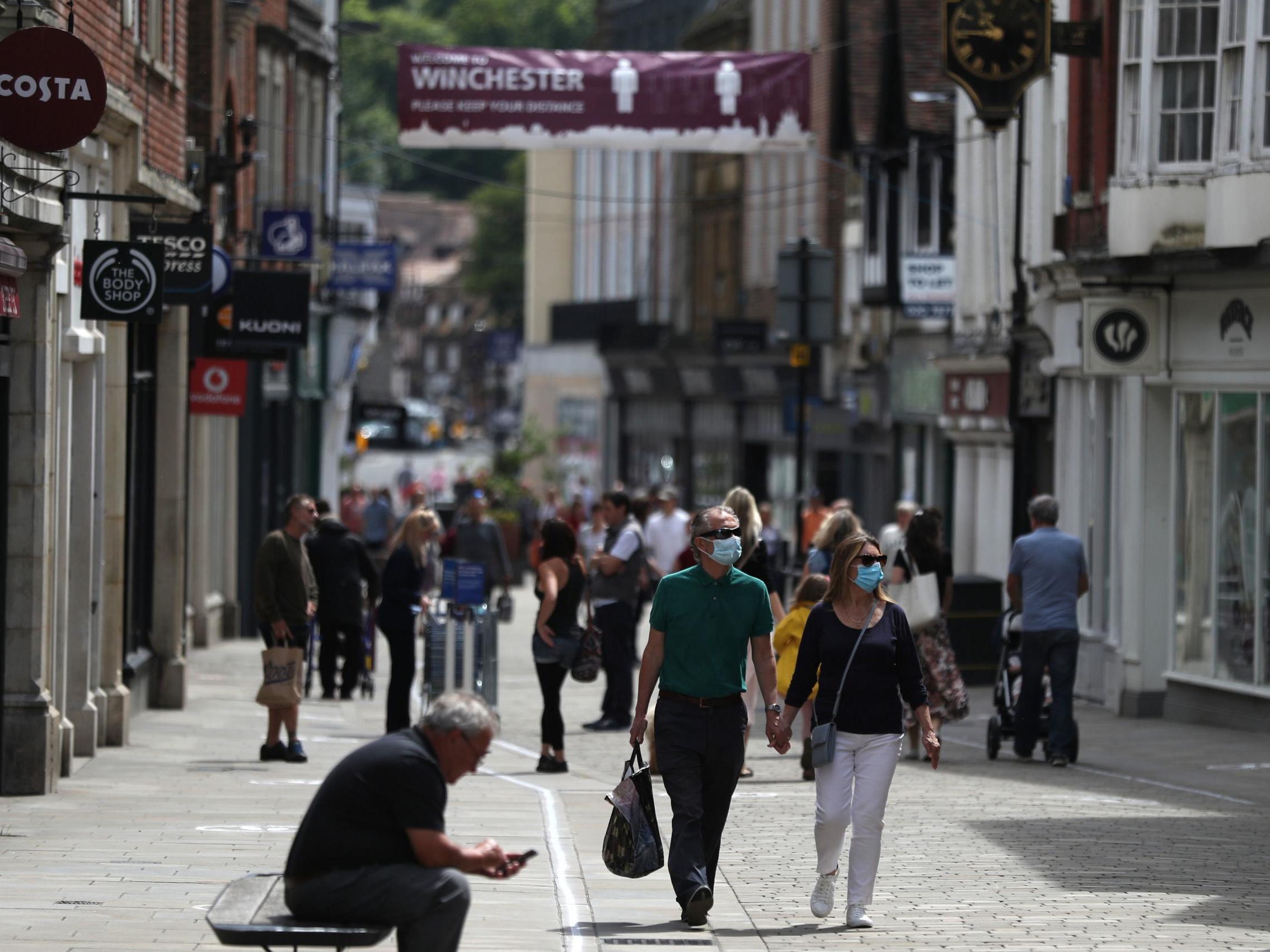Dispelling fear among the public will be crucial to the economic recovery
It’s worth remembering that in a recession everything always feels bad, but every one in the past has been followed by a recovery, writes Hamish McRae


Fear is holding back the economic recovery. But if people are scared of spending money in the shops (suitably masked) or taking public transport to the office, all the urging from the government won’t make them do so.
In the past 24 hours we have had a warning that a second wave of Covid-19 could possibly kill 120,000 of us this winter under a worst-case scenario, coupled with the dire forecasts from the Office for Budget Responsibility (OBR) that unemployment could peak at 13 per cent in the early park of next year. Add in the confusion about compulsory masks in shops and the rational conclusion for most people would be that if you are not scared you’re not paying attention.
The danger of a downward spiral is obvious: people hold back on spending, which means that temporary workers and young people seeking their first jobs get particularly hard hit, while those in established careers try hunker down in case they find that they too are made redundant. That cuts demand even more.
So what on earth should be done?
At times like this there is an inclination to reach for the parallels in the past but there really aren’t any good ones. In broad macro-economic terms we do have the recession of 2008-09, and that gives template to measure this downturn. The OBR and the IMF think it will be worse than that, and while I think they are both being overly pessimistic it would be mad not to take their forecasts seriously. (I think we will go down further than in 2009 but come up faster.)
But in terms of the structural disruption there is no precedent in peacetime – and the theatres stayed open even during the Second World War. Boris Johnson harked back to the New Deal of Franklin D Roosevelt, and it is certainly true that the words of his Inaugural Address to Congress in 1933 ring true today: “So, first of all, let me assert my firm belief that the only thing we have to fear is fear itself – nameless, unreasoning, unjustified terror which paralyses needed efforts to convert retreat into advance.”
But that was a long time ago, and it is not at all clear that his pump-priming of the economy did in fact make a sustained recovery possible. I am afraid it took rearmament to do that.
But there are things that can be done, and indeed are being done. The disorganised response of the UK government to the crisis has not helped, and the clamour of contradictory advice from the scientific community has not helped either. Both have sapped confidence. But the fiscal response by the chancellor has been as positive as that of any major economy, and the monetary response from the Bank of England has been quietly effective too.
So how do you dispel fear?
Well, first people have to have faith in government, and rebuilding that will come only slowly. The economic data will be bad through the autumn and into next year. But people are not stupid and if they see a revival taking place, for example in the housing market, they will gradually recover their confidence.
Next, it is worth remembering that in a recession everything always feels bad. It is the nature of the beast. However there is a natural economic cycle and every recession in the past has been followed by a recovery. The last one, 2008-09, was unusually deep, but was followed by an unusually long growth phase. It was also characterised by exceptionally strong growth in employment, leading to the lowest unemployment rate since the 1970s.

Yes, I know that the figures show that the job-rich recovery was associated with very low growth in productivity, but these are now belatedly being revised and it may well turn out that productivity was fine after all.
The data now are very confused, as you would expect, and when that happens the most helpful guide is educated instinct – the education coming from the immediate hard data rather than the traditional sources. That means things like the payments through bank accounts rather than the purchasing manager surveys.
The Bank of England has the closest handle on these real-time numbers and the comment of its chief economist, Andy Haldane, that the recovery is “so far, so V” makes sense to me. But he also warned of possible second, third and fourth waves, and it that proves right then the more gloomy outlook of the OBR will justified.
Join our commenting forum
Join thought-provoking conversations, follow other Independent readers and see their replies
Comments
Bookmark popover
Removed from bookmarks